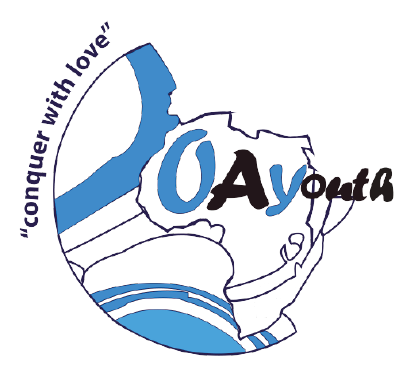OAY COVID-19 RESPONSE
Coronavirus Disease (covid-19) Pandemic
The outbreak of Coronavirus disease (COVID-19) in 2019; and eventual declaration of a Pandemic status by WHO has led to rapid and disruptive socio-economic, governance and public order management changes globally, with the most vulnerable affected.
To get more credible information and updates on COVID-19 in terms of advice to the public, technical guidance, response , research and recovery efforts, please go to World Health Organization (WHO) information Hub at Coronavirus disease (COVID-19) pandemic.
Also, visit Kenyan Ministry of Health COVID-19 web page at Ministry of health.
OAY has engaged covid-19 response in 4 ways
In early 2020, OAY believed that Africans needed inspiration and solidarity so that it can overcome the Covid19 pandemic. In 2020, OAY commissioned a rapid survey [link] on the impact of COVID-19 in Kenya and launched the report in partnership with Kenya National Youth Council. The focus was to strengthen advocacy around actions being taken (1) then for immediate stoppage of disease’s spread with vital supplies and information given (2) in medium term to restore people to normal conditions and (3) for long-term inclusivity and pro people socio-economic recovery. The study established that there was a communication challenge from the government,that there was little emergency preparedness and response and the response was taken largely as a security issue as opposed to public health issue. Further, there was disproportionate attention to other critical services and sectors such as job creation, food production and distribution, education, reproductive and terminal diseases health care.
OAY sensitized their staff, volunteers and beneficiaries on COVID-19 and provided necessary linkages to relevant resources and vaccination services. OAY has also adopted and institutionalized ALL Ministry of Health and World Health Organization’s protocols, measures and guidelines across all levels.
OAY launched #Solidarity4Humanity Campaign, a youth led COVID-19 Response. The aim of the campaign was to harness the power of young people in saving humanity, not looking at youth simply as a vulnerable population, but as core actors in all and related processes against the fight.
Goal of the campaign
to harness the power of youth in saving humanity from COVID-19 Pandemic.
Our focus
support government efforts in;
-
Livelihoods support and recovery
-
Setting up the youth to direct and drive the conversation
-
Evidence building, dissemination and 360 degree feedback
-
Advocating for continuity of other essential services such as RMNCAH+N
Campaign Pillars
-
Health and Wellbeing
-
Humanitarian Support
-
Livelihood and Resilience
Intervention
-
Organized a virtual dissemination of the survey findings
-
Created online safe space platform for youth engagement
-
Convened a national survey aimed at understanding the impact, challenges and interventions in Kenya
-
Implemented strategic social media engagement activities in partnership with 6 other youth organizations
-
Participated in 4 webinars to address impacts of COVID-19 in relation to loss of income, poor nutrition, schools and colleges closures and emerging SGBV and WASH issues
Based on learnings from #Solidarity4Humanity Campaign, Organization of African Youth (OAY) in partnership with county governments of Nairobi and Kisumu with the support of World Health Organization (WHO AFRO) implemented COVID-19 prevention and control measures.
The first phase in 2020 involved building knowledge among the youth on COVID-19 as well as building a youth agency that will take lead in supporting adherence to protocols therein enhancing the prevention and control initiatives. This campaign is focused on spaces where the youth often congregate, these being learning and religious institutions. The interventions focused on youth of ages 18-24 years and young adults . The intervention anticipated that, with this approach, a bulk of the country will be reached therein relieving the government and donor investment focused on the curative aspect of health care. Through the Risk Communication and Community Engagement (RCCE) project, OAY focused on private/ public higher learning institutions and religious institutions comprising churches, mosques which have a huge youth population. The second phase, March 2020-December 2020 involved;
-
To increase the demand and community uptake of covid 19 vaccine during the festive season
-
To continue working with Champions for Change to address infondemic and foster Social Behavior Change Communication (SBCC) so that Covid-19 related public health measures are adhered to during the holiday season more so targeting young people
The target audiences were as follows;
-
Funerals
-
Religious places i.e. churches, mosque
-
Sporting forums and events i.e. players ,spectators
-
Media engagements i.e. radio talk show, twitter chat
-
Transport sector: Bus parks, mass transit points ,bodaboda shades i.e. touts
-
Business community and Market areas: Clubs, restaurants i.e. DJs,MCs, club managers, hawkers, vendors , customers
In the third phase, OAY explored partnership with WHO to scale up the project to regional level with focus on Engagements around Risk Communication and Community Engagements (RCCE) and Infection Prevention and Control (IPC) within and beyond COVID-19 response in at least 4 other countries.
In summary, Key Strategic approaches that OAY has adopted in COVID-19 response;
-
Communication – by using all the available means of communication to increase community access to information on COVID-19 vaccination ● Social media [Twitter, Whatsapp, Facebook] ● Media engagement through participation in radio talk show and interviews
-
Social mobilization, linkages and referrals – this is done by involving the different community organizations and groups such as churches ,religious place ,funeral
-
Effective Monitoring, evaluation , learning & reporting - ● Compiling activity reports, final report and field supervisory visits ● Documentation of success stories
